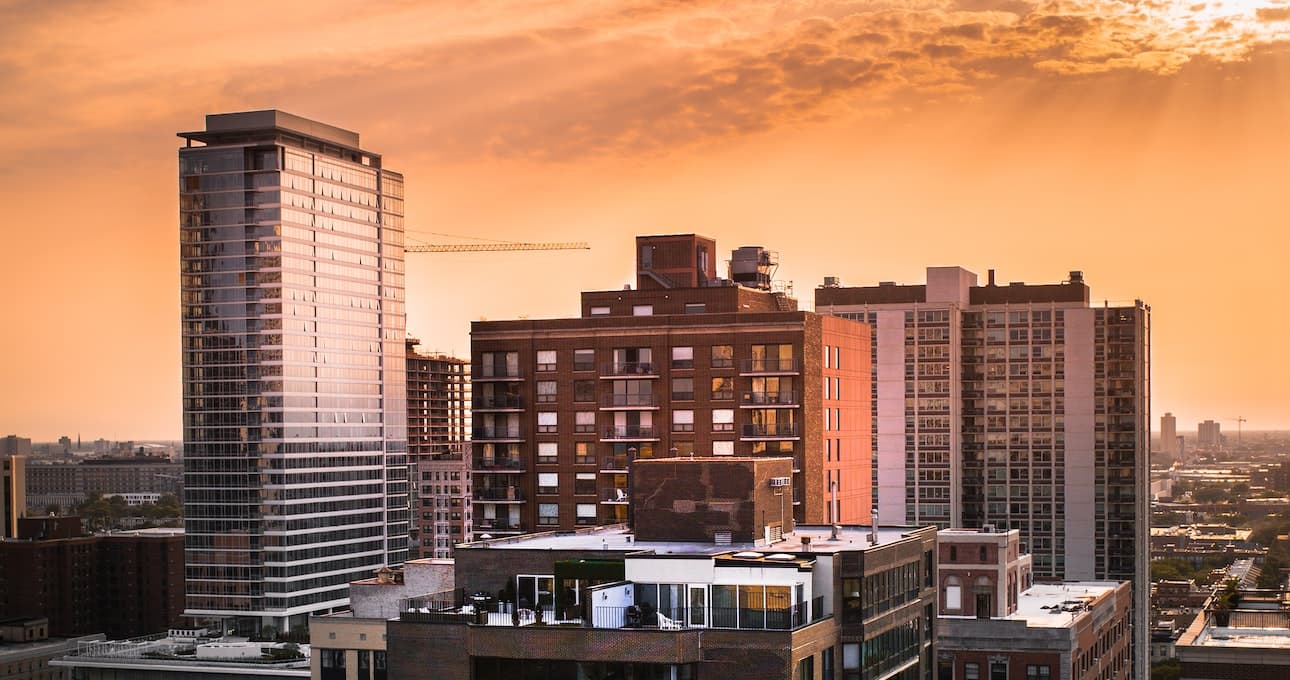- info@colombialawconnection.com
- +57 321 864 2275
This guide is designed to assist those considering the path to Colombian citizenship, whether you are a foreign national seeking to make Colombia your permanent home or a Colombian-born individual returning after living abroad. Here, we provide a comprehensive overview of what it means to obtain the nationality of Colombia, the benefits of Colombian citizenship, and how this decision can impact your life and integration into Colombian society.
Whether you are exploring options for dual citizenship in Colombia, applying through descent, marriage, or naturalization, this guide will help you understand how to apply for Colombian citizenship and navigate the process with confidence.
What are the benefits of becoming a citizen in Colombia?
Becoming a Colombian citizen comes with numerous benefits that extend beyond residency, offering greater opportunities for integration, legal security, and economic advantages. Here are some of the key benefits:
- 1. Right to Vote and Political Participation: As a Colombian citizen, you gain the right to vote in national and local elections, giving you a voice in the country's political process. Citizenship also opens the door to running for certain public offices, allowing you to actively contribute to the governance of Colombia.
- 2. Ease of Travel: A Colombian passport provides visa-free or visa-on-arrival access to numerous countries worldwide, especially within Latin America. This simplifies international travel and eliminates many of the bureaucratic hurdles faced by non-citizens.
- 3. Access to Social Services: Citizenship ensures full access to Colombia's public healthcare system, recognized for its affordability and quality. Citizens also benefit from social security programs, education opportunities, and other public services that may be limited for non-citizens.
- 4. Employment Opportunities: As a citizen, you can work without the need for special work permits. This not only broadens job opportunities but also allows access to positions in government and other fields restricted to citizens.
- 5. Property Ownership: While foreigners can own property, becoming a Colombian citizen simplifies this process, offering enhanced legal security and fewer restrictions, particularly for certain types of property investments.
- 6. Cultural Integration: Obtaining Colombian citizenship is a significant step toward full integration into Colombian society. It reflects a commitment to the country's culture and values, fostering a deeper sense of belonging and acceptance in the community.
- 7. Elimination of Visa and Residency Hassles: As a citizen, you no longer need to renew visas or residency permits, saving both time and money. This also eliminates concerns about meeting residency requirements to maintain your status.
- 8. Family Benefits: Citizenship can simplify the process of obtaining residency or citizenship for family members, making it easier to unify your family under the nationality of Colombia.
- 9. Legal Security: Citizenship provides greater legal protection compared to residency. As a citizen, you cannot be deported, and you are granted rights and protections that non-citizens may not have.
- 10. Economic Advantages: Citizenship often comes with better access to financial opportunities, including loans, business ventures, and government incentives, which may be restricted for non-citizens.
Why Choose Colombian Citizenship?
The benefits of Colombian citizenship go beyond legal status, providing a foundation for a stable and integrated life in Colombia. From easier travel to enhanced economic opportunities, becoming a citizen is a decision that offers both immediate and long-term rewards.
What are the eligibility requirements to apply for citizenship in Colombia?
The requirements for obtaining Colombian citizenship vary depending on the applicant's specific circumstances. There are three primary pathways: naturalization for foreigners, Colombian citizenship by birth, and Colombian citizenship by marriage. Below is a detailed breakdown of the requirements for each category:
Naturalization for Foreigners
Foreign nationals can apply for Colombian citizenship through naturalization by meeting the following criteria:
- Residency Requirement: Applicants must reside continuously in Colombia for a specific period before applying: Five years for most foreigners, One year for nationals of Latin American and Caribbean countries.
- Good Conduct: Applicants must have no criminal record or legal issues during their stay in Colombia.
- Economic Stability: Proof of financial stability, such as employment, business ownership, or other legal sources of income, is required.
- Spanish Language Proficiency: Applicants must demonstrate proficiency in Spanish, Colombia's official language.
- Knowledge of Colombian History and Constitution: A basic understanding of Colombian history, culture, and the constitution is often assessed through a test or interview.
- Health Insurance: Proof of valid health insurance coverage is typically required.
Colombian Citizenship by Birth
Citizenship by birth is granted in the following cases:
- 1. Born in Colombia: Anyone born in Colombia is automatically granted Colombia nationality, regardless of the parents' citizenship status.
- 2. Born Abroad to Colombian Parents: Children born outside Colombia to at least one Colombian parent can claim Colombian citizenship by descent, provided the parent's citizenship was active at the time of the child's birth.
Colombian Citizenship by Marriage
Foreigners married to Colombian citizens can obtain Colombian citizenship if they meet these requirements:
- Marriage Duration: The couple must be married for at least two years.
- Residency Requirement: The foreign spouse must reside in Colombia for at least two years, though this period may be reduced in specific cases.
- Marriage Validity: The marriage must be legally recognized in Colombia.
Other Considerations
- Documentation: Applicants need to provide a valid passport, residency visa, and additional personal identification.
- Health Examination: A general health examination may be required as part of the process.
- Application Fees: There are fees associated with the application for Colombian citizenship, which vary based on the individual case.
Legal Notes and Recommendations
- Changes in Laws: Immigration laws are subject to change, and requirements may vary based on specific circumstances or updates to Colombian nationality law.
- Seek Legal Advice: Working with an experienced immigration attorney or consulting with the Colombian consulate ensures that you meet all requirements and have the most up-to-date guidance on how to apply for Colombian citizenship.
Navigating the complexities of obtaining Colombian citizenship is easier with expert assistance. At Colombia Law Connection, we specialize in helping clients understand the benefits of Colombian citizenship, determine eligibility, and manage the application process. Whether you're pursuing dual citizenship in Colombia, applying through naturalization, or seeking Colombian citizenship by marriage, we're here to guide you every step of the way.
What is the process for apply for citizenship in Colombia?
The process of applying for Colombian citizenship varies depending on whether you are pursuing naturalization, marriage, or another pathway. Below is a comprehensive step-by-step guide for naturalization, the most common path for foreigners to obtain Colombia nationality:
Step-by-Step Process for Naturalization
Step 1: Meet the Eligibility Criteria
Ensure you meet all the necessary requirements, including:
- Residency: Fulfill the residency requirement (typically five years, or one year for citizens of Latin American and Caribbean countries).
- Good Conduct: Maintain a clean criminal record.
- Economic Stability: Provide evidence of financial solvency or steady income.
- Language Proficiency: Demonstrate fluency in Spanish, Colombia's official language.
- Civics Knowledge: Show an understanding of Colombian history, culture, and the constitution.
Step 2: Gather Required Documents
Compile all necessary documentation, such as:
- A valid passport.
- Proof of continuous residence in Colombia (e.g., rental agreements or utility bills).
- Colombian visa.
- Police clearance certificate.
- Evidence of economic stability (e.g., employment contracts or bank statements).
- Health insurance documentation.
- Additional documents may be required based on individual circumstances, such as proof of Colombian citizenship by marriage or descent.
Step 3: Prepare for and Take the Required Tests
- Spanish Proficiency Test: Applicants must pass a language test conducted by the Colombian Ministry of Education or an authorized institution.
- Civics Test: Demonstrate knowledge of Colombian nationality law, history, and the constitution through a test or interview.
Step 4: Submit Your Application
- Complete the citizenship application form, which is available on the Colombian Ministry of Foreign Affairs website or at their offices.
- Submit the application along with all required documents to the Ministry of Foreign Affairs or the appropriate government office.
Step 5: Application Review and Interview
The Ministry of Foreign Affairs will review your application, which can take several months.
Applicants may be required to attend an interview to discuss their background, reasons for applying, and knowledge of Colombia citizenship requirements.
Step 6: Approval and Oath of Allegiance
If your application is approved, you will be invited to take an oath of allegiance to Colombia, a formal ceremony where you will officially become a Colombian citizen.
Step 7: Obtain Colombian Citizenship Documents
After the oath, you will receive your Colombian citizenship certificate.
You can then apply for a Cédula de Ciudadanía (Colombian national ID card) and a Colombian passport.
Step 8: Register in the Electoral Rolls
New citizens must register in the electoral rolls to gain the right to vote in Colombian elections, one of the key benefits of Colombian citizenship.
Additional Considerations
- Processing Time: The process can take several months to over a year, depending on individual circumstances.
- Fees: Application fees, test fees, and document issuance fees apply.
- Legal Assistance: Seek guidance from immigration lawyers or consult Colombian immigration authorities to ensure compliance with the latest requirements and Colombian nationality law.
- Updates: Always verify the latest procedures and regulations, as they may change over time.
Citizenship by Marriage
If you are applying through marriage, the process is similar, but the residency requirement might be shorter, and you will need to provide proof of your marriage and its validity in Colombia.
- Processing Time: The entire process can take a considerable amount of time, often several months to over a year, depending on various factors.
- Fees: There are fees associated with the application, tests, and issuance of documents.
- Legal Advice: It's advisable to seek legal advice or consult with Colombian immigration authorities for detailed and personalized guidance, as procedures and requirements can change.
Updates: Always check for the most current information and procedures, as immigration laws and policies can change.
How long does the citizenship application take?
The time required to obtain Colombian citizenship depends on individual circumstances and the efficiency of administrative processes. Here's an overview of the typical timeline:
Residency Requirement
Before applying, you must fulfill the residency requirement:
- Five years for most foreigners
- Two years for those applying for Colombian citizenship by marriage
- One year for nationals of Latin American and Caribbean countries.
Application Processing
Once the residency requirement is met, the application process generally takes several months to over a year. This timeline includes:
- Preparing and gathering the required documents, such as proof of Colombia nationality eligibility and financial stability
- Submitting your application to the Colombian Ministry of Foreign Affairs
- Completing the Spanish language and civics tests
- Attending interviews (if required)
Administrative Variations
The total duration may vary depending on:
- The complexity of your case (e.g., applying for Colombian citizenship by descent may involve additional documentation).
- The workload of Colombian immigration authorities at the time of your application.
Key Factors to Consider
- Updates to Procedures: Changes in Colombian nationality law or administrative processes can impact the timeline.
- Professional Guidance: Working with legal experts like Colombia Law Connection can help streamline the process by ensuring your application is complete and accurate, reducing delays.
If I was born in Colombia but have lived abroad for many years and obtained citizenship in a new country, do I have to reapply for Colombian citizenship?
If you were born in Colombia but have lived abroad for many years and obtained citizenship in another country, you typically do not need to reapply for Colombian citizenship. Colombia recognizes the principle of jus soli (right of the soil), meaning anyone born in Colombia is considered a citizen by birth. This citizenship is lifelong and remains valid even if you acquire another nationality.
Key Points to Consider
1. Dual Citizenship in Colombia
Colombia allows dual citizenship, meaning acquiring citizenship in another country does not result in the automatic loss of your Colombian citizenship.
You can hold multiple nationalities, enjoying the benefits of Colombian citizenship alongside those of your other nationality.
2. Maintaining Colombian Citizenship
If you were born in Colombia and have a Colombian birth certificate, you are automatically recognized as a Colombian citizen by birth.
No reapplication for Colombian nationality is necessary, even if you have lived abroad for an extended period.
3. Updating Colombian Documents
To renew or obtain Colombian identification documents, such as a Cédula de Ciudadanía or a Colombian passport, contact the nearest Colombian consulate or embassy.
These offices can guide you through the process of renewing or acquiring your documents as a citizen by birth.
4. Legal Obligations
As a Colombian citizen, you are subject to Colombian laws, including potential obligations such as taxes or military service.
It is essential to understand these responsibilities, especially if you plan to return to Colombia or maintain ties with the country.
5. Verifying Your Status
If there are doubts about your citizenship status or if you have unique circumstances, consult with the Colombian embassy or a legal expert familiar with Colombian nationality law.
Key Takeaway
If you were born in Colombia, your Colombian citizenship is for life. Acquiring citizenship in another country does not negate your Colombian nationality. However, keeping your Colombian documents updated is crucial for exercising your rights and proving your status as a Colombian citizen by birth.
Legalizing Documents for Use in Colombia from Abroad
If you are living outside Colombia and need to legalize documents for use within the country, it is essential to follow the correct procedures to ensure your documents are properly apostilled or legalized. This step is crucial for various applications, including immigration to Colombia, business formation, and other legal processes under Colombian nationality law.
Steps to Legalize Documents for Use in Colombia
1. Visit a Colombian Embassy or Consulate
Contact the nearest Colombian embassy or consulate for assistance with the legalization or apostille process.
These offices can guide you on how to prepare and submit your documents in compliance with Colombian regulations.
2. Use Colombia's Official Government Portal
If your country does not have a Colombian consular presence, visit the official government portal at www.gov.co.
This resource provides detailed instructions for document legalization and apostille, ensuring your documents meet Colombian citizenship and legal requirements.
3. Ensure Documents Meet Colombian Standards
Documents must be properly apostilled or legalized according to Colombian law to be recognized for official use.
Common documents requiring legalization include birth certificates, marriage certificates, academic records, and financial statements.
United States - Embassy in Washington, D.C.
Website: https://estadosunidos.embajada.gov.co/
Phone: +1 202 387 8338
United Kingdom - Embassy in London
Website: https://reinounido.embajada.gov.co/
Phone: +44 20 7589 9177
Start Your Path to Colombian Citizenship Today
Ready to secure the benefits of Colombian citizenship? Whether you're applying through birth, marriage, or naturalization, our experts at Colombia Law Connection are here to guide you every step of the way. contact us now for personalized legal support and make your journey to Colombia nationality seamless.
Contact Us NowWe are here to help
Frequently asked questions
? Can I retain my original nationality if I obtain Colombian citizenship?
? Is it mandatory to live in Colombia after obtaining citizenship?
? Are children of Colombian citizens born abroad automatically Colombian citizens?
? Do I need a Colombian ID (Cédula de Ciudadanía) after obtaining citizenship?
? Can Colombian citizenship be revoked?
Expert Legal Services
+57 321 864 2275
Call us now
All calls are kept strictly confidential






